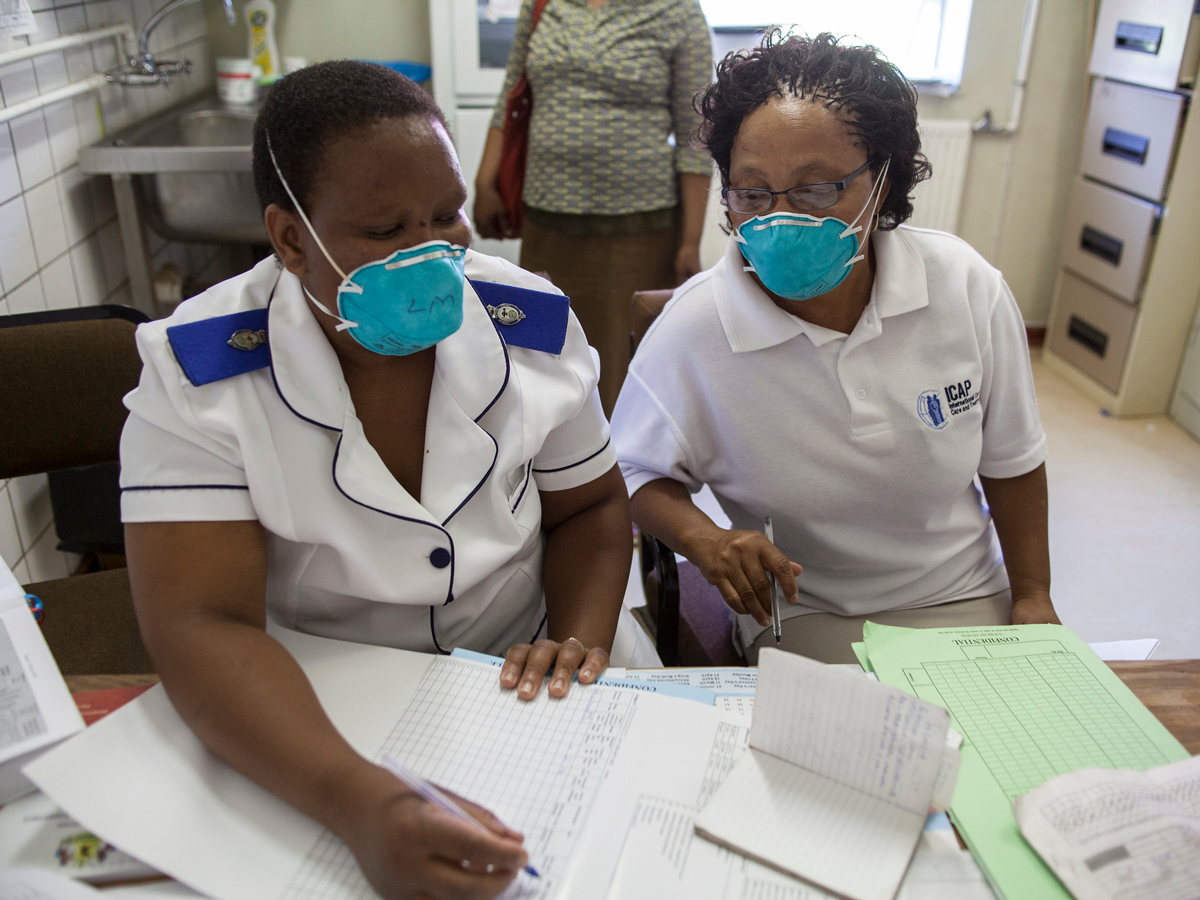In April, ICAP was awarded $100,000 from the Bristol-Myers Squibb Foundation to engage and empower frontline health care workers in Eswatini, Ethiopia, and Tanzania to respond to the COVID-19 pandemic.
As the spread of COVID-19 steadily increases across sub-Saharan Africa, there is an urgency to prepare and protect health care workers to effectively address the pandemic despite weak health systems with limited infrastructure and personnel.
Through this funding, ICAP will implement innovative capacity-building strategies to establish and strengthen the knowledge, attitudes, and practices of frontline health care workers so they can safeguard their own health while preventing, diagnosing, and managing COVID-19. As the leading edge of the response, they will also be trained to disseminate accurate, consistent, and contextually appropriate information to the communities they serve.
“The generous support of the Bristol-Myers Squibb Foundation will play an important role in rapidly building capacity where it is most needed, enabling frontline health workers in Eswatini, Ethiopia, and Tanzania to gain the knowledge and skills needed to provide comprehensive COVID-19 services as the number of cases increase across Africa,” noted Susan Michaels-Strasser, PhD, MPH, RN, FAAN, ICAP’s senior director for Human Resources for Health Development. “Using a series of action-oriented training modules, frontline health workers will have access to the most critical information on infection prevention and control, COVID-19 diagnosis, and patient care, as well as measures to protect themselves, non-COVID patients, and the community.”
ICAP will work with each country’s ministry of health to leverage existing partnerships and virtual learning platforms to design and implement a high-impact, competence-based training program for professional and lay health care workers.
“The funding from Bristol-Myers Squibb Foundation came at the right time to contribute to Eswatini’s efforts in addressing COVID-19 challenges, including its impact on the health system,” observed Ruben Sahabo, MD, country director, ICAP in Eswatini. “This project will empower frontline health care workers to respond to the ongoing epidemic and will also contribute to minimizing absenteeism of health care workers while ensuring essential health services are maintained.”
“By leveraging our extensive experience in Ethiopia, we will be working closely with the ministry of health to identify and operationalize innovative approaches to improve the capacity of frontline health care workers to manage COVID-19 in the context of the country,” said Zenebe Melaku, MD, country director, ICAP in Ethiopia. “We thank the Bristol-Myers Squibb Foundation for its timely and generous financial support.”
“The funds come at the right time when we are working toward controlling the spread of COVID-19 infection in Tanzania,” noted Sarah Matemu, MD, MBA, MPH, acting country director, ICAP in Tanzania. “It will support training of frontline health care workers on prevention, management of suspected and confirmed cases, and monitoring and reporting. The trained healthcare workers will then be able to cascade the training to additional staff at health facilities and eventually create teams that are confident in combating the pandemic.”
With the support of BMS Foundation, ICAP is committed to maximizing efforts to ensure health care workers are well-equipped and supported to address COVID-19 in their communities.
Additional information and updates about ICAP’s global work to address the pandemic can be found at: https://icap.columbia.edu/covid-19/.
A global health leader since 2003, ICAP was founded at Columbia University with one overarching goal: to improve the health of families and communities. Together with its partners—ministries of health, large multilaterals, health care providers, and patients—ICAP strives for a world where health is available to all. To date, ICAP has addressed major public health challenges and the needs of local health systems through 6,000 sites across more than 30 countries.








